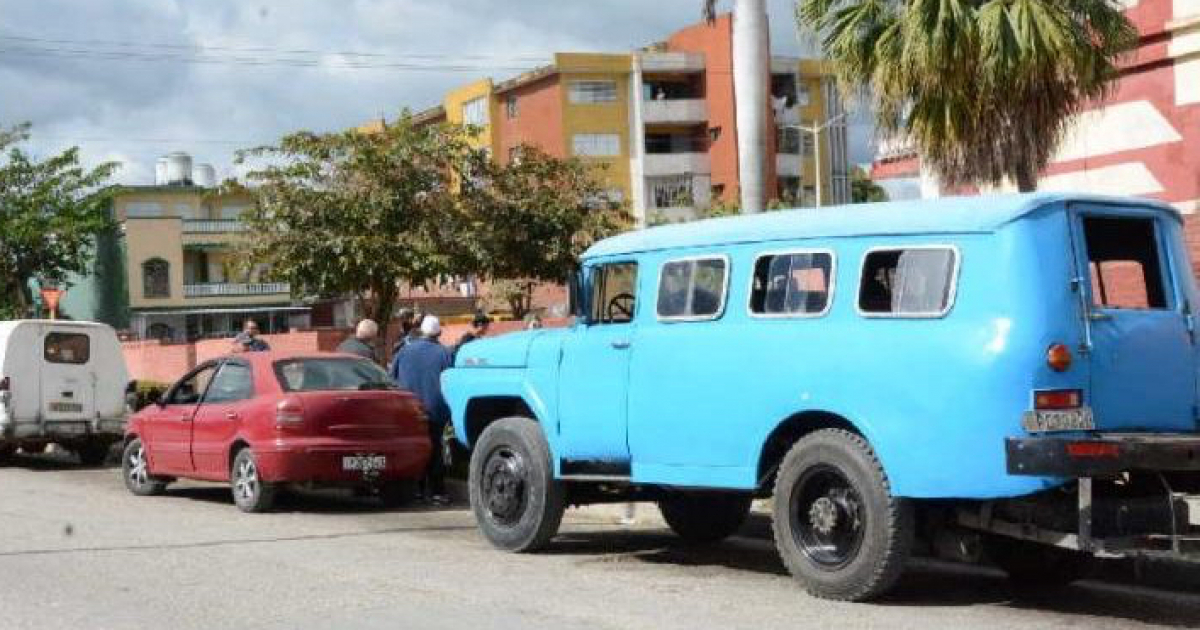
The Cuban Government has chosen to apply immigration regulations to prevent at least 200 people in Sancti Spíritus from leaving the country who supposedly declare less income than they actually have and do not update themselves following the request of the National Office of the Tax Administration (ONAT).
This is how he collects it diary Escambray, qIt claims that last year half a thousand taxpayers were included in the blacklist for underreporting income. According to the official newspaper, for this reason 40 million pesos were lost (about 123,000 dollars if it is exchanged at 1 x 325 and 1.6 million USD if the exchange is at 1 x 24).
Those who do not pay once they have received the pressure from the Tax Administration are reported for the crime of tax evasion. So far this year, 14 processes for this cause are already underway, which total, always according to Escambray, 10.2 million pesos. Immediately afterwards, the ONAT sends the files of these people to the Analysis Group of the Ministry of the Interior to investigate the cases and determine whether or not to initiate criminal proceedings.
Some pay when they receive the obligation and if they do not do so, the immigration regulation is applied, which is maintained until they pay a debt that the ONAT does not explain how it calculates or how it determines that they are facing an underdeclaration of income.
Another sanction that is also applied is the withdrawal of the commercial license temporarily or permanently and the closure of the establishment, in case of recidivism.
Marisleidy Perdigón Pérez, deputy director of the ONAT in Sancti Spíritus, denies that the purpose of the ONAT is to penalize or sanction those who they consider declare income below their actual earnings but rather to get them to pay "disciplinedly."
According to the MSME registry (mipymescuba.top) in Sancti Spíritus there are 370 small and medium-sized companies registered.
Controls in Las Tunas
Also with the aim of uncovering undeclared income, the National Tax Administration Office in Las Tunas has announced the start of a tax verification operation for all MSMEs in the province that declared losses in 2023. According to reports Newspaper26, after the closing, on March 31, of the period for voluntary payment of profits of the business system, of the 109 MSMEs registered in the province, 11 declared losses and another 10 are non-operational.
The MSMEs that claim to have recorded losses in 2023 are in Manatí, Jobabo, Jesús Menéndez, Colombia and Las Tunas. Those that ended the year inoperative are from Majibacoa, Jobabo and the main municipality.
The official newspaper assures that the payment campaign is going with "significant" delays. In the case of the declaration of personal income, which includes self-employed workers, artists, social communicators and other figures, only 36.7% of them are up to date with the ONAT. By municipality, Las Tunas is the one with the most defaulters, while in Manatí is where almost 70% of those taxpayers are already up to date.
By sectors, the one furthest behind with payments is agriculture. Of the 10,000 usufruct owners or land holders who are required to make the declaration, only less than 22% have done so three weeks before the closing of the voluntary deadline for the Affidavit and Tax Payment Campaign.
The control of small and medium-sized businesses, MSMEs, is not limited to Las Tunas. This April 15, agents from the Ministry of the Interior, from 100 and Aldabó, deployed plainclothes agents around two establishments (the Mipyme Tres Hermanos Tabares (THT) and the Rápido y Rico restaurant). The operation raised all the alarms in the Matanzas municipality of Jagüey Grande.
According to images shared on Facebook, the operation lasted more than 24 hours and merchandise was confiscated. With more than 60,000 inhabitants, Jagüey Grande is one of the most dynamic municipalities in the creation of MSMEs in Cuba, of which about 60 appear registered on the mipymescuba.top site.
The issue of MSMEs is very controversial outside Cuba due to the relationship of small and medium-sized businesses with the regime. That's why at the beginning of this month of April, The United States Government prohibited allocating federal funds to MSMEs linked to the dictatorship, as part of the Fiscal Year 2024 State Appropriations, Foreign Operations and Related Programs Act.
In mid-October last year, independent media revealed that Mariela Castro's daughter and granddaughter of dictator Raúl Castro was the owner of a MSME in Havana dedicated to the sale of food.
Lisa Titolo Castro, daughter of Mariela and her Italian husband Paolo Titolo, who live in a luxurious mansion in the exclusive Miramar neighborhood, was the owner of Gaia Mercado. Lisa follows the path of his cousin Sandro Castro, grandson of the dictator Fidel Castro, in the business world.
There are many complaints on social networks that indicate that MSMEs belong to members of the regime's upper echelons, family members, or repressive officials.
What do you think?
COMMENTFiled in: